Mosaic Makers Collective Focused on Handmade, Female-Inspired Goods
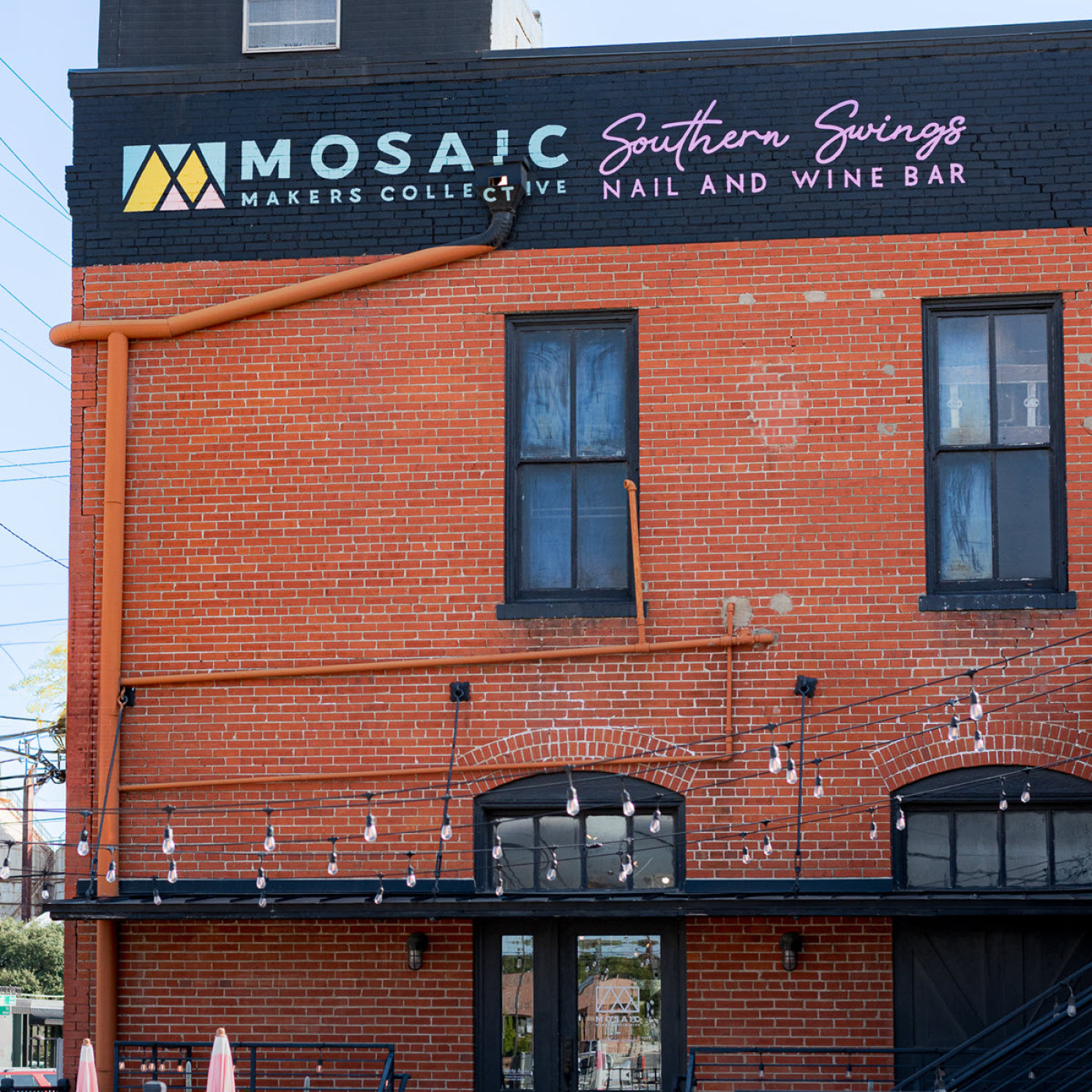
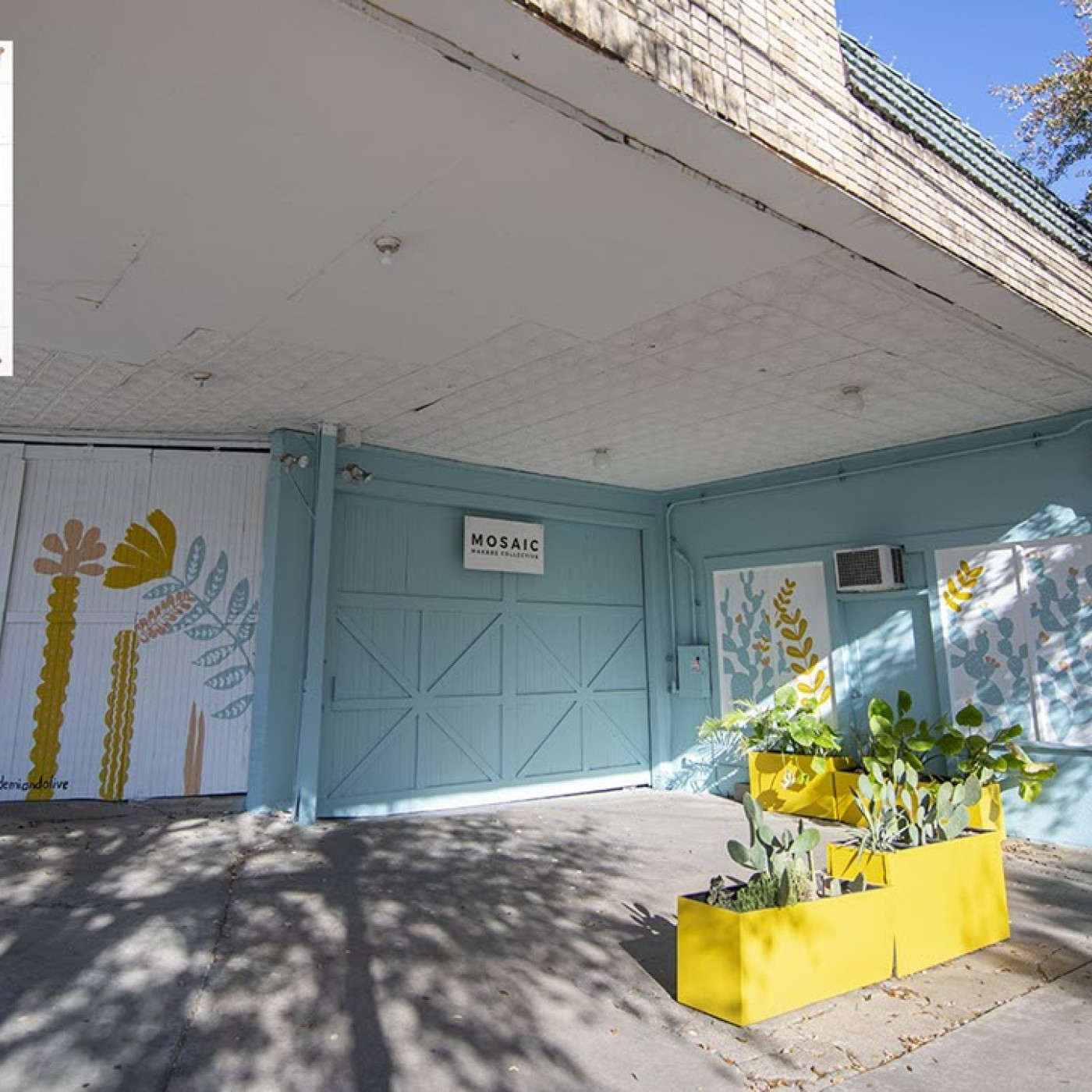
Katy Sensenig Schilthuis has always been great at two things — celebrating creativity and bringing people together.
“I’ve been creative from birth! I was always starting projects and businesses — my first being KT’s Cosmetics and a pet-sitting service by age 8,” she said.
Her father is an entrepreneur and has always encouraged her to “never stifle creativity.” Katy grew up dancing and playing classical violin.
She studied creative writing, Japanese, and music in college. After college, she worked in the nonprofit world and then in marketing and social media management with small businesses as a freelancer.
“Working with nonprofits and small businesses in marketing gave me a unique look inside the small-business world. However, the marketing work alone wasn’t enough to satisfy my constant creative itch,” Katy said. “I needed to create and sketch — I wanted to be my own boss and guide others in bringing their visions to life.”
The freelance marketing served as a steppingstone to launching her stationery brand, Fresh Out of Ink, in 2016. And it was while running Fresh Out of Ink that she had a light bulb moment that resulted in her next venture.
Katy was meeting talented women at local markets and pop-up events and said she realized there was a need to form a supportive community around them and provide resources, because the women were often “wearing all the hats” in their businesses.
“I knew I wanted to create a space for community, friendship, and support, but I wasn’t sure how to activate it until I saw a space for lease in the Bishop Arts District of Dallas, Texas,” she said. “That’s when the idea clicked — we could create a shop format that would serve as both a retail space and a community hub for female artisans.”
Katy said the Bishop Arts District is one of the most vibrant and historic neighborhoods in Dallas. “Known for its small-town charm, unique boutiques, and incredible dining, Bishop Arts attracts locals and tourists alike. It’s a hub for creativity and community, making it the perfect spot for Mosaic,” she said.
That led Katy to become the founder and owner of Mosaic Makers Collective. It opened in Dallas in 2018, with a second location added about 90 miles away in Waco in 2024.
The collective’s focus is handmade, female-inspired goods, and she explained why. “Supporting handmade goods is invaluable — it stimulates the local economy and directly supports our community. I chose to focus on women because they are often underrepresented in the artisan world,” Katy said. “For example, only about 2.3% of venture capital funding goes to women-led startups, and women-owned businesses often receive less financial support compared to their male counterparts.”
She said, “My previous experiences allowed me to learn what I enjoyed and what I didn’t, and this journey led me to a role that feels like a perfect fit (even though there’s no such thing as a ‘perfect’ job!). I’ve always thrived in creative environments, and running my own business made me realize how isolating it can be — and how vital community is, especially for local, female artisans.”
Regarding the collective’s name, Katy said it reflects the concept of a mosaic art piece — a beautiful creation made from different, colorful pieces and each with a unique shape and style. “We are a ‘mosaic’ of women and artisans, each contributing something special to the whole,” she said.
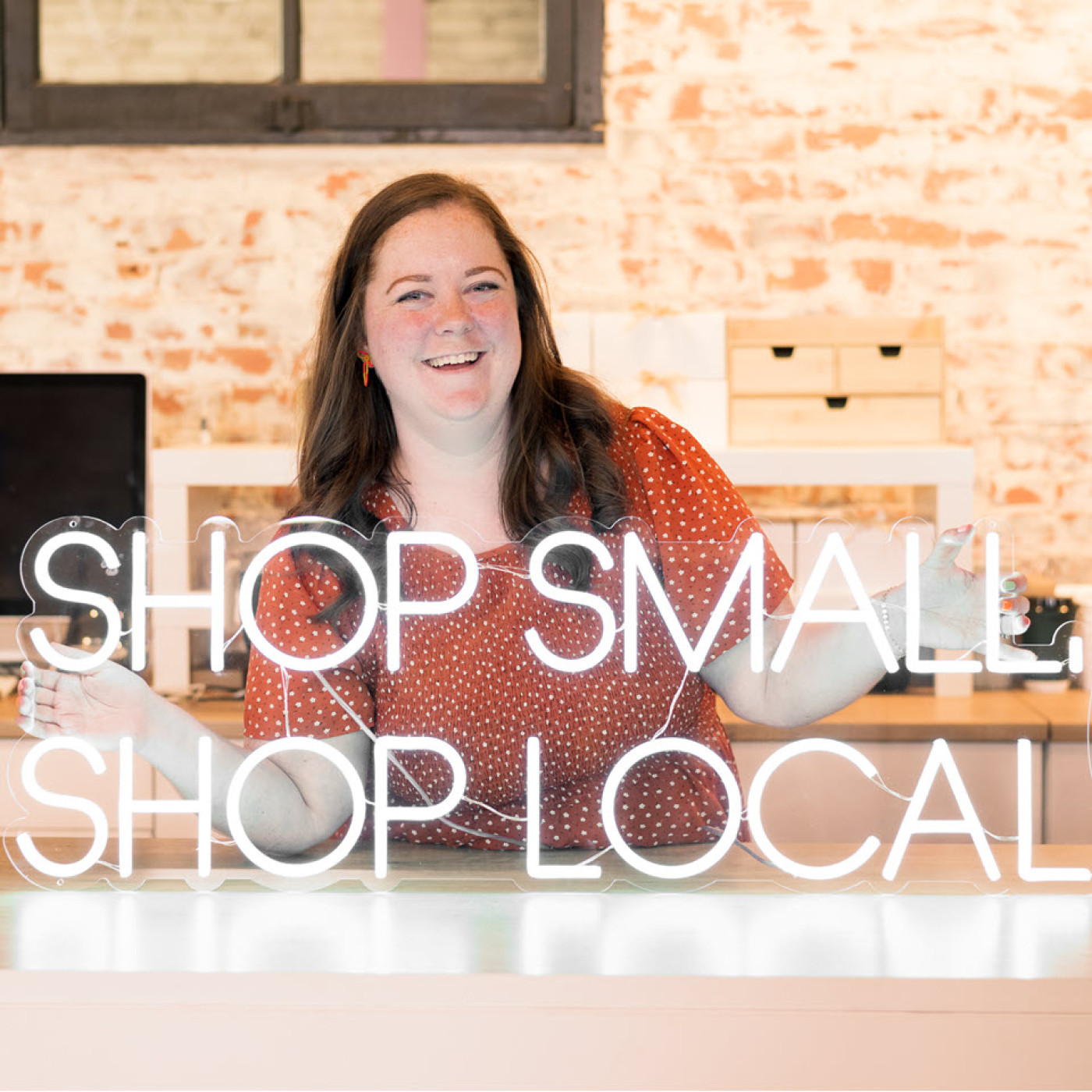
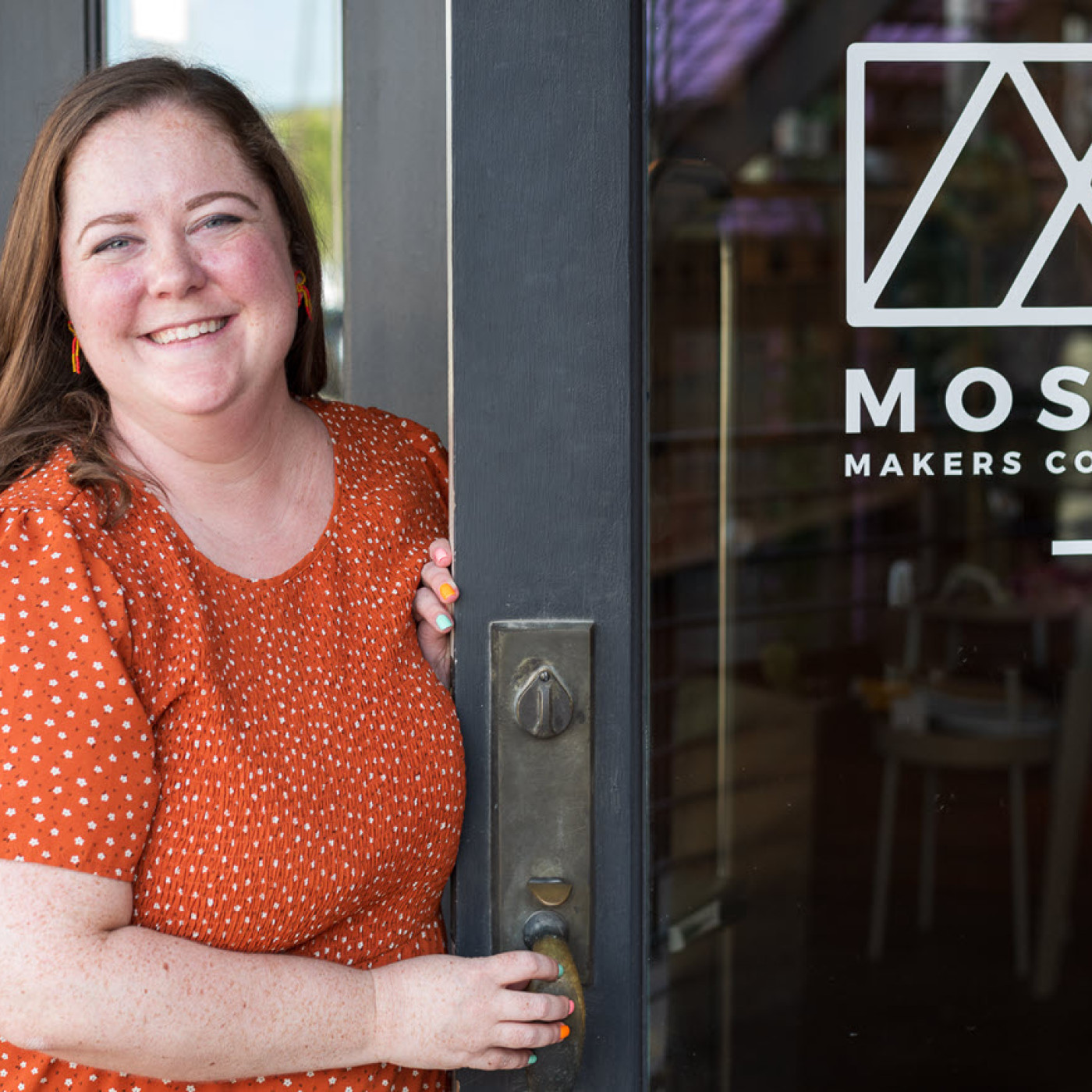
A Fast-Moving Decision
“The transition from idea to shop was incredibly quick — about six weeks. I reached out to the network of women I had connected with through markets and pop-ups, and within a couple of weeks, I had contracts signed with seven other women,” Katy said. “My husband and I financed the shop ourselves, and we worked together to build out the retail space. In just a few weeks, we were open for business in a small, under-300-square-foot space.”
By February 2020, they outgrew the cozy, 280-square-foot space, moved to a 2,000-square-foot location in the district that also has a 1,000-square-foot patio, and opened there on March 1 with 50 makers. Two weeks later, they closed the storefront due to the COVID-19 pandemic and pivoted to an online platform, with great success.
She explained how the Waco location came about. They wanted to expand within two hours of Dallas/Fort Worth, so she could easily visit the location but still give the on-site team creative control.
Waco was perfect. “We see Waco as just the beginning and hope to expand ever further,” Katy said.
The space there includes 2,300 square feet of retail space and 500 square feet of storage in the Silos District near Magnolia Market. “This area is a beacon for makers, tourists, and locals, thanks to its focus on craftsmanship and the influence of Chip and Joanna Gaines,” Katy said. “The neighborhood’s energy aligns beautifully with our mission to support local artisans.”
She said both spaces are in historical buildings and are leased. “Dallas was once an old auto garage and gas station, requiring a massive makeover with new paint, walls, lighting, and more,” Katy said. “Waco is in the Percy Medicine building, a historic pharmacy from 1908, where we honored the original brick and tile but added fixtures, displays, and signage.”
The Dallas location is open 11 a.m. to 6 p.m. Sunday to Thursday and 11 a.m. to 9 p.m. Friday and Saturday. The Waco location is open 10 a.m. to 7 p.m. Monday to Saturday. Hours are often extended during the holiday season.
The Dallas team includes one general manager and three part-time assistant managers, all of whom are artisans. Katy said the roles have evolved over time but have maintained a core focus on both day-to-day operations and strategic planning. One full-time general manager leads operations in Waco.
Their journey in Dallas has been steady and intentional, with 2024 being their most successful year to date, she said. “Our wholesale line, expanded online presence, and new Waco location have all contributed to this growth,” Katy said.
She said the wholesale line emerged from their Dallas management team, who saw a need that aligned with their values and mission. “The Girl Riot Society collection launched in spring 2024 and has received an incredible response both within Texas and nationwide,” Katy said. “We hope to expand the Girl Riot collection in the new year and introduce a line for babies and children.”
In addition, they created Apothecary No. 501 and launched that line at Waco’s grand opening. “This line pays homage to the building’s history — we formulated a bath and body collection that celebrates well-being and health, uses natural and organic ingredients, and gives a nod to key figures from the original Percy Medicine staff, including Miss Mary, the first secretary to join the team in the early 1900s,” she said.
Katy said one of their biggest challenges has been finding a balance for everyone involved in the collective. For example, artisans were initially required to work shifts in the shop, which was not feasible for everyone.
“Our artisans come from diverse backgrounds — some have full-time jobs, others are moms, and their availability to work shifts or participate in events varies. We’ve overcome this by building flexible systems, like dedicated liaison support and a manageable contract model that accommodates their different needs,” she said.
Many staff members are artisans. However, it is no longer a requirement.
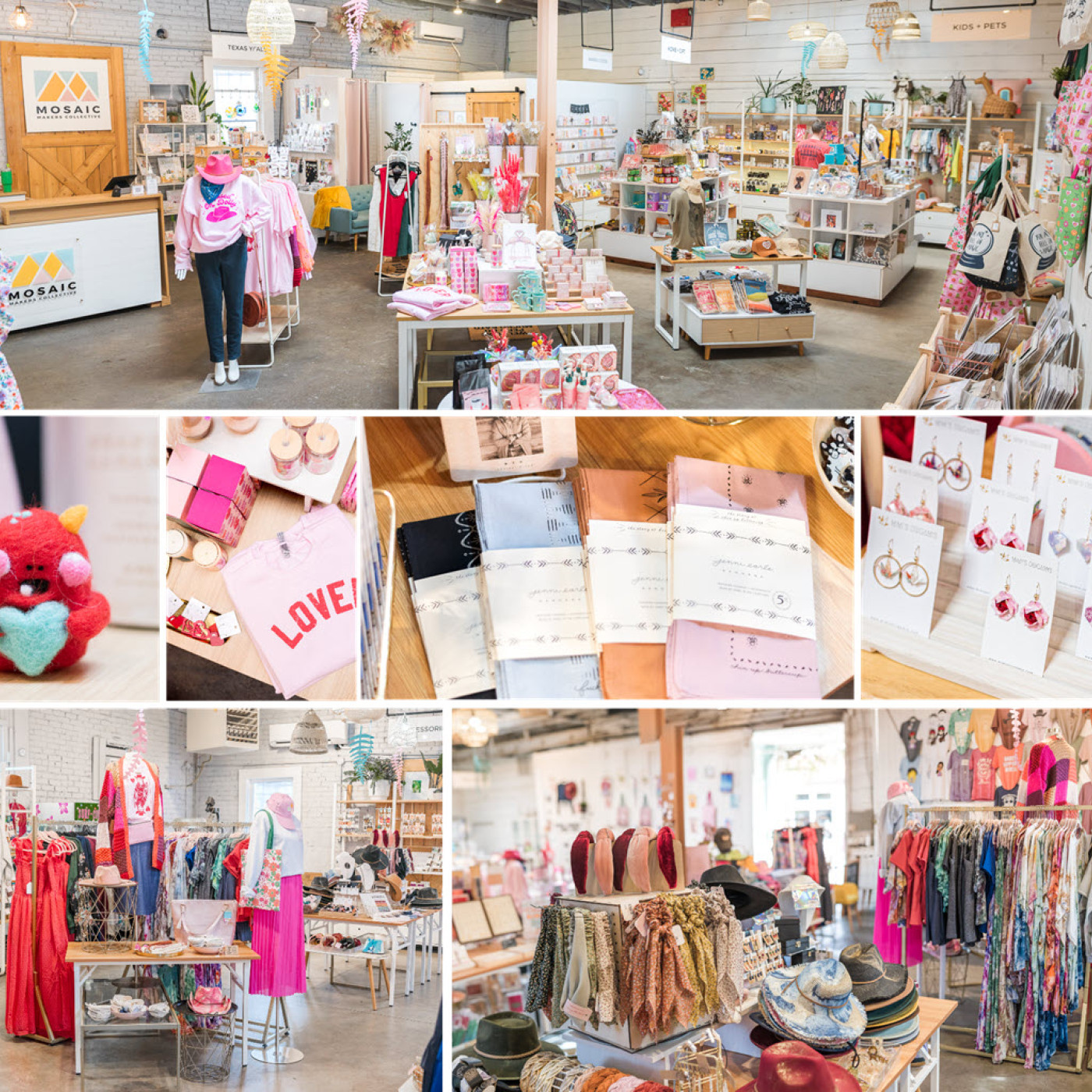
The Business Model
Accessories, apparel, bath and body products, gifts, home décor, jewelry, goods for children and babies, men’s products, paper goods, and pet items are sold at Mosaic Makers Collective. Katy said the categories remain consistent across both locations, though the specific inventory may vary based on local preferences and artisan availability.
They chose the categories based on the makers they initially partnered with and expanded over time to include more products for men, children, and pets. She said the growth has been driven by customer feedback and artisan capabilities.
About 100 artisans are featured in Dallas and approximately 80 in Waco, with 40 to 50 of them represented in both locations. Katy said that since starting the collective, they have “refined our inventory strategy to include a wide variety of mediums, limiting the number of artisans in each category. We also ensure that each artisan’s voice is distinct, providing diverse styles even within the same category. When sections are full, we maintain a waitlist to ensure balance and fair representation.”
They carefully curate complementary goods from wholesale markets to enhance their artisans’ products. “For example, we might add a wick trimmer to accompany handmade candles. I also attend the Dallas Market to shop for these items and to exhibit our in-house wholesale line, Girl Riot Society,” she said.
Their bestsellers include T-shirts, jewelry, and paper goods like cards and stickers. Anything Texas-themed flies off the shelves, as does their Girl Riot Society collection, she said.
Inside the Collective
The collective’s business model is a blend of consignment, community engagement, and a coaching program designed to support artisans’ growth. The six-month consignment contracts offered include a monthly fee for access to resources like a vendor portal, online community, in-person meetups, and coaching. “While sales are critical for sustainability, our primary mission is to serve and empower the artisan community,” Katy said.
She noted the six-month period was chosen for consignment contracts to cover key retail periods like Mother’s Day and the holiday season while also providing enough time for meaningful product analysis. “A shorter term wouldn’t provide enough data to help artisans understand trends, while a yearlong contract could feel too lengthy for newer makers,” she said.
Katy describes the business model as a unique one she has developed and adapted over time. Most of their artisans join through the collective. She said the coaching program helps artists grow and achieve success with their product-based businesses.
With the contract cycles, artisans must meet contract requirements to renew. “During this time, they bring in products to sell and engage in community events and one-on-one coaching with our dedicated Maker Liaison team,” Katy said. “These coaching sessions are free and cover anything from joining the shop to pricing, packaging, branding, retail trends, and more.”
She said the coaching program arose from observing a consistent need among their makers. “Artisans frequently sought guidance, and we realized that the knowledge we had could benefit everyone in the collective,” Katy said. “We wanted all artisans — regardless of how often they visit the shop — to access the same insights about customer trends, product performance, and retail strategy.”
They have three trained Maker Liaisons, with each providing structured coaching sessions tailored to artisans’ individual needs. She said artisans can specify topics of interest or questions when booking, to ensure the session is as beneficial as possible.
These one-on-one sessions focus on product analysis, sales insights, packaging, and more. “The goal is to provide artisans with actionable feedback and support, whether they need guidance on sales trends, marketing strategies, or overall business growth,” Katy said.
The collective also maintains an active online community where artisans can share insights, ask questions, and offer advice. She said the in-person meetups, from neighborhood hangouts to Meet the Maker events, foster a sense of community.
She said they strive to be an incredible resource for women, serving as an incubator that helps them grow their businesses. “We’ve had artisans pay off debt, get their products into major stores like Trader Joe’s and Target, and even open their own shops after selling with us,” Katy said.
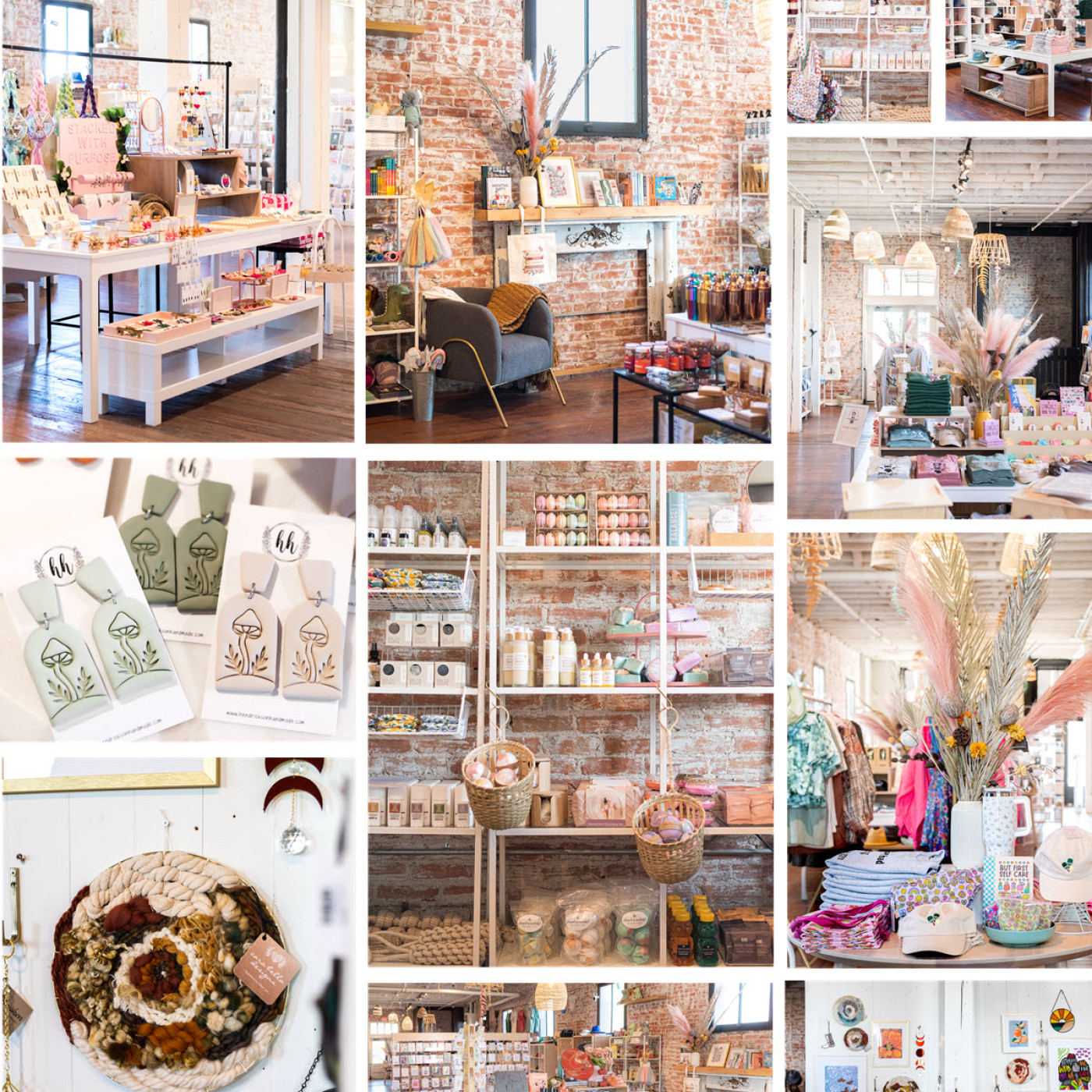
Advice for Artists
“We believe in the future of women-designed, local retail. Our mission is to celebrate the full creativity of women and support their entrepreneurial dreams,” Katy said. “Though business has its challenges, the difference we make in individual lives motivates us every day.”
For artists wondering if this idea could work where they live, she said it can — but it takes hard work and time to grow. “We’ve learned so much at Mosaic Makers Collective and are always refining our model,” Katy said. “I’m happy to connect with anyone interested in doing something similar — it’s incredibly rewarding!”
Those with such questions may contact her at hello@mosaicmakers.co. “I’m currently developing a licensing program to help others launch their own collectives. This all-in-one tool kit will provide contracts, software, merchandising guidance, and more, making it easier for others to replicate our model and foster community-driven artisan shops,” she said.
The two-part program is designed to empower boutique owners, pop-up market organizers, and artisan collectives nationwide. “The first part is a software solution tailored specifically for the needs of boutique-style retail, pop-ups, and consignment shops,” Katy said. “The second part is a licensing model that enables others to replicate the Mosaic Makers Collective concept in their own communities.”
She said the software is an all-in-one platform aimed at simplifying retail management by handling vendor relations, customer engagement, marketing, and sales automation, all integrated seamlessly with Shopify. It is designed for easy use by both boutique owners and artisans, offering a range of key features, such as:
- Vendor Management: Allows shops to manage vendor contracts, inventory, and communications all in one place, streamlining operations for consignment-based models and market events.
- Customer Engagement Tools: Provides a comprehensive CRM that tracks customer behavior, automates follow-ups, and allows for personalized outreach via email, SMS, and social media.
- Marketing Automation: Built-in tools for creating and scheduling marketing campaigns across social media and email, with premade templates to help boost customer interaction.
- Inventory and Sales Tracking: Integrates with Shopify to provide real-time inventory management, sales insights, and detailed reports that help identify bestsellers, slow movers, and emerging trends.
- Event Management: Specialized add-ons to manage one-day pop-ups, craft fairs, or vendor markets, covering everything from vendor applications to marketing promotions and day-of logistics.
- Staff and Scheduling Management: Offers tools for hiring, onboarding, shift scheduling, and performance tracking to help boutiques manage their teams efficiently.
Katy said the second part of the program will focus on licensing the Mosaic Makers Collective model itself. “This will provide a framework and tool kit for others to establish community-driven, consignment-based retail collectives in their own regions,” she said. “The licensing model will include guidance on setting up retail spaces, fostering community involvement, coaching artisans, and implementing consignment-based sales structures.”
They are targeting a 2025 launch for both components of the initiative, aiming to offer comprehensive support to emerging retail collectives and artisan-focused shops across the country.
Katy loves hearing the success stories of women in Mosaic Makers Collective. “Whether they’ve gotten out of debt, landed major national partnerships, quit their full-time jobs, or made their first sale, it’s incredible to see how Mosaic has helped transform their lives,” she said.
The collective’s journey has been an adventure. And Katy is excited for what is next.
Visit Mosaic Maker Collective Online